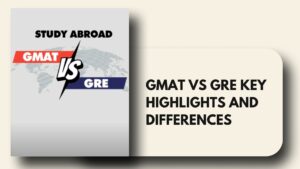Do you want to know more about the career aspects of a Master’s in Finance (M.Fin) course abroad? An M.Sc in Finance provides opportunities to gain specialised knowledge and skills relevant to finance, investment, and money management. This course inculcates decision-making skills relevant to financial planning, financial management, and strategic management of important wealth-related assets.
- Career After Master’s in Finance Abroad: Introduction
- Popular Jobs After M.Sc in Finance Abroad
- Master’s in Finance Abroad: Popular Specialisations
- Career After Master’s in Finance: Country-Wise Jobs & Salaries
- United States of America (USA) - Finance -
- United Kingdom (UK)
- Canada
- France
- Germany
- Australia
- Rest of Europe
- Salary after Master’s in Finance Abroad: Experience-Wise Distribution
- Payback Period for Indian Students
- Conclusion
- FAQs

Career After Master’s in Finance Abroad: Introduction
A master’s in finance, or M.Fin course, is a highly advanced postgraduate program offered in several prestigious universities in the USA, UK, France, Australia, etc., such as London Business School, University of Oxford, MIT, ESSEC, Bocconi University, University of Queensland, Rotman Business School, etc.
After completing the course, graduates can work at banks, financial institutions, investment firms, tech firms, investment management firms, etc., with high salary packages that might vary depending on the country and the employer.
Popular Jobs After M.Sc in Finance Abroad
We have tabulated popular jobs after a master’s in finance worldwide and their average annual salaries.
| Job Post | Average Salaries (Per Year) |
|---|---|
| Investment Banking Analyst | INR 45 Lakh-75 Lakh |
| Financial Analyst | INR 65 Lakh-83 Lakh |
| Risk Manager | INR 44 Lakh-61 Lakh |
| Marketing Analyst | INR 30 Lakh-50 Lakh |
| Financial Consultant | INR 43 Lakh-64 Lakh |
| Asset Management Analyst | INR 39 Lakh-52 Lakh |
Master’s in Finance Abroad: Popular Specialisations
An M.Sc. in Finance provides exposure to different specialisations in the core areas of financial planning and investment, such as financial accounting and reporting, markets and institutions, financial modelling, international finance, etc. Some of the most popular M.Fin domains are described below.
Mergers & Acquisitions (M&A): It refers to consolidating two companies or entities to form a new organisation. It also involves the acquisition of a company by another one. The primary purpose of M&A is to make the associated organisations profitable and gain significant growth in the market.
Consulting: In this sector, finance graduates provide consulting services to organisations, government agencies, communities, etc., on economics, wealth management, finances, etc., to facilitate them in making informed decisions on financial subjects.
Investment Banking: Unlike commercial banks and financial institutions, investment banks allow corporations, governments, investors, etc., to raise financial capital, provide strategic advisory, and facilitate smooth trading operations in financial markets.
Trading: In this sector, within a master’s in finance program, emphasis is laid on developing and executing the principles, strategies, and practices involved in buying and selling financial instruments, such as stocks, bonds, derivatives, and currencies.
Asset Management: It deals with the techniques of growing wealth through purchasing, maintaining, and trading investments. It also involves managing investments on behalf of clients to help them achieve their financial goals.
Career After Master’s in Finance: Country-Wise Jobs & Salaries
As discussed above, the M.Fin course facilitates international students’ development of the financial and marketing expertise needed to handle various job profiles, such as financial analyst, investment banking analyst, portfolio manager, credit analyst, financial advisor, etc.
The job roles and salaries might differ depending on the country and the employer. Below, we have provided detailed information about the various job roles that M.Fin graduates are offered in different countries.
United States of America (USA) – Finance –
In the USA, master’s in finance graduates are offered the following types of job opportunities at top companies such as ALM First Analytics, Amazon, CBRE, Capital One, Deloitte, KPMG, etc.
| Job Post | Average Salary (Per Year) |
|---|---|
| Financial Analyst | USD 63,000-100,000 (INR 52 Lakh-83 Lakh) |
| Investment Analyst | USD 87,000-200,000 (INR 73 Lakh-1.67 Crore) |
| Financial Associate | USD 72,000-100,000 (INR 60 Lakh-83 Lakh) |
| Investment Manager | USD 100,000-200,000 (INR 83 Lakh 1 Crore) |
| Financial Manager | USD 78,000-100,000 (INR 65 Lakh-83 Lakh) |
United Kingdom (UK)
International graduates can pursue the following job roles after completing an M.Sc Finance in the UK. Some top recruiters are PwC, Shanghai Bank, HSBC, Ever Bright Bank, Huawei, and Samruk Energy JSC.
| Job Post | Average Salary (Per Year) |
|---|---|
| Investment Bank Analyst | GBP 41,000-69,000 (INR 45 Lakh-75 Lakh) |
| Consultant Banker | GBP 24,000-53,000 (INR 26 Lakh-58 Lakh) |
| Risk Analyst | GBP 30,000-48,000 (INR 32 Lakh-52 Lakh) |
| Financial Manager | GBP 26,000-41,000 (INR 28 Lakh-45 Lakh) |
| Investment Manager | GBP 27,000-45,000 (INR 29 Lakh-49 Lakh) |
Canada
Some of the popular master’s in finance job roles in Canada are tabulated below, along with their average annual salary.
Goldman Sachs, State Farm, Bank of Canada, KPMG, JP Morgan Chase, Hilltop Holdings, etc., are the top recruiters in the country.
| Job Post | Average Salary (Per Year) |
|---|---|
| Budget Analyst | CAD 58,000-81,000 (INR 35 Lakh-50 Lakh) |
| Investment Banker | CAD 50,000-84,000 (INR 30 Lakh-51 Lakh) |
| Market Analyst | CAD 50,000-83,000 (INR 30 Lakh-50 Lakh) |
| Financial Analyst | CAD 78,000-200,000 (INR 34 Lakh-47 Lakh) |
| Risk Manager | CAD 100,000-300,000 (INR 44 Lakh-61 Lakh) |
France
We have tabulated below some of the popular master’s in finance job roles in France and their average annual salaries. Accenture, HSBC, BNP Paribas, Citi Bank, Allianz, Generali, CIBC, etc., are the top financial services recruiters in France.
| Job Post | Average Salary (Per Year) |
|---|---|
| Investment Analyst | EUR 45,000-50,000 (INR 41 Lakh-46 Lakh) |
| Portfolio Manager | EUR 47,000-85,000 (INR 43 Lakh-78 Lakh) |
| Equity Strategist | EUR 100,000-200,000 (INR 92 Lakh-1.82 Crore) |
| Investment Associate | EUR 55,000-100,000 (INR 51 Lakh-92 Lakh) |
| Relationship Manager | EUR 48,000-52,000 (INR 44 Lakh-48 Lakh) |
Germany
Below are some of the most popular master’s in finance jobs in Germany, along with their average annual salary.
Companies such as Bank of America, Allianz, Bain & Company, Barclays, McKinsey & Company, Oliver Wyman, and UBS are the top recruiters in the country.
| Job Post | Average Salary (Per Year) |
|---|---|
| Investment Banker | EUR 55,000-71,000 (INR 51 Lakh-65 Lakh) |
| Consultant Banker | EUR 44,000-69,000 (INR 40 Lakh-64 Lakh) |
| Risk Analyst | EUR 51,000-68,000 (INR 47 Lakh-63 Lakh) |
| Corporate Finance Manager | EUR 75,000-100,000 (INR 69 Lakh-92 Lakh) |
| Financial Consultant | EUR 47,000-70,000 (INR 43 Lakh-64 Lakh) |
Australia
In Australia, master’s in finance graduates can find the following job roles in top financial services companies like Deloitte, Ernst and Young, KPMG, Macquarie Group, PwC, Amazon, Microsoft, etc.
| Job Post | Average Salary (Per Year) |
|---|---|
| Fund Manager | AUD 86,000-300,000 (INR 48 Lakh-1 Crore) |
| Financial Planner | AUD 81,000-100,000 (INR 45 Lakh-55 Lakh) |
| Risk Manager | AUD 100,000-200,000 (INR 55 Lakh-1.11 Crore) |
| Investment Banker | AUD 100,000-200,000 (INR 55 Lakh-1.11 Crore) |
| Financial Analyst | AUD 80,000-100,000 (INR 44 Lakh-55 Lakh) |
Rest of Europe
In Australia, master’s in finance graduates can find the following job roles in top financial services companies like Deloitte, Ernst and Young, KPMG, Macquarie Group, PwC, Amazon, Microsoft, etc.
| Job Post | Average Salary (Per Year) |
|---|---|
| Asset Management Associate | EUR 43,000-57,000 (INR 39 Lakh-52 Lakh) |
| Risk Analyst | EUR 22,000-36,000 (INR 20 Lakh-36 Lakh) |
| Financial Analyst | EUR 28,000-38,000 (INR 25 Lakh-35 Lakh) |
| Private Equity Analyst | EUR 34,000-46,000 (INR 31 Lakh-42 Lakh) |
| Treasury Manager | EUR 44,000-55,000 (INR 40 Lakh-51 Lakh) |
Salary after Master’s in Finance Abroad: Experience-Wise Distribution
Work experience, skill sets, employer, location, etc., can influence the average salary of an M.Sc in Finance graduate. Below, we have tabulated the variations in the global average salary of an M.Fin graduate with respect to years of work experience.
| Years of Experience | Global Average Salary (Per Year) |
|---|---|
| 1-3 | INR 46 Lakh-70,000 |
| 3-5 | INR 70 Lakh-1 Crore |
| 5-10 | INR 1 Crore-1.60 Crore |
| 10+ | INR 1.60 Crore-4 Crore |
Payback Period for Indian Students
The payback period for students refers to the amount of time in which they are estimated to recover their total investment of tuition fees and living expenses. We have calculated the estimated payback period for several countries using the following formula:
Payback Period = Total Investment/Annual Net Salary
| USA | UK | France | Germany | Canada | Australia | Rest of Europe |
|
|---|---|---|---|---|---|---|---|
| AnnualTuition Fees (A) | USD 25 k-75 k | GBP 30 k-50 k | EUR 5-40 k | EUR 20 k-40 k | CAD 10 k-30 k | AUD 35 k-50 k | EUR 2 k-20 k |
| Annual Living Expenses (B) | USD 15-29 k | GBP 10 k-18 k | EUR 9 k-15 k | EUR 10 k-15 k | CAD 15 k-30 k | AUD 20 k-35 k | EUR 10 k-15 k |
| Course Duration (C) | 2 Year | 1 Year | 2 Year | 2 Year | 2 Year | 2 Year | 1.5 Year |
| Total Investment [(A+B)xC] | USD 80 k-208 k | GBP 88 k-136 k | EUR 28 k-110 k | EUR 60 k-110 k | CAD 50 k-120 k | AUD 110 k-170 k | EUR 24 k-70 k |
| Annual Salary | USD 78 k-122 k | GBP 25 k-40 k | EUR 45 k-200 k | EUR 50 k-100 k | CAD 50 k-100 k | AUD 80 k-300 k | EUR 22 k-55 k |
| Net Salary (Annual Salary-Living Expenses) | USD 63 k-93 k | GBP 15 k-22 k | EUR 36 k-185 k | EUR 40 k-85 k | CAD 35 k-70 k | AUD 60 k-265 k | EUR 12 k-40 k |
| Payback Period/ROI | 1-2 Year | 5-6 Year | <1 Year | 1 Year | 1-2 Year | 2 Year | 2 Year |
It is important to note that the above calculations are only for illustration purposes and are not to be meant as a guarantee of salary/jobs. You can use our method to calculate your estimated payback period based on your experience and country of choice.
Conclusion
A master’s in finance program allows students to develop leadership and organisational abilities in sectors like finance, investment, and asset management. The core focus areas of an M.Sc in Finance generally include financial accounting and reporting, markets and institutions, financial modelling, trading, wealth management, investment banking, etc.
While pursuing a master’s in finance course abroad, students must focus on the long-term vision by inculcating the required skillsets, academic expertise, and professional experience.
FAQs
Is work experience required to get admission into the master’s in finance course abroad?
To get admission into the master’s in finance program, there is no requirement to have professional experience. However, having work experience can strengthen your application.
Which country has the highest salary in the finance industry?
The countries with the highest salaries after master’s in finance are the USA, UK, and Canada because of the presence of a strong economy and well-developed financial markets.
Is MS Finance better than CFA?
It depends on certain factors, such as personal interest, academic goals, professional aims, etc., to decide whether you want to pursue an MS in Finance or a CFA (Chartered Financial Analyst).
A Master’s in Finance provides opportunities to pursue diverse roles within the financial industry, whereas CFA is specially focused on investment management, financial analysis, equity research, portfolio management, etc.
What jobs can I get after a master's in finance abroad?
It depends on the country, experience, specialisation, pursued field of interest, etc., to determine what kind of employment you will obtain after completing a master’s in finance abroad. Some common job roles are financial analyst, investment banking analyst, risk manager, financial advisor, etc.
Is it difficult to get a job after completing a M.Sc. in Finance abroad?
If you have developed skillsets relevant to the financial market, such as analytical skills, critical thinking, interpersonal skills, valuation and modelling skills, etc., and achieved a higher professional qualification during your study program, it would be easier to find jobs after completing an M.Sc in Finance abroad.
If you are an aspirant looking to study at your dream university, book an appointment with AdmitX today and start your applications early to avail yourself of all the benefits.














